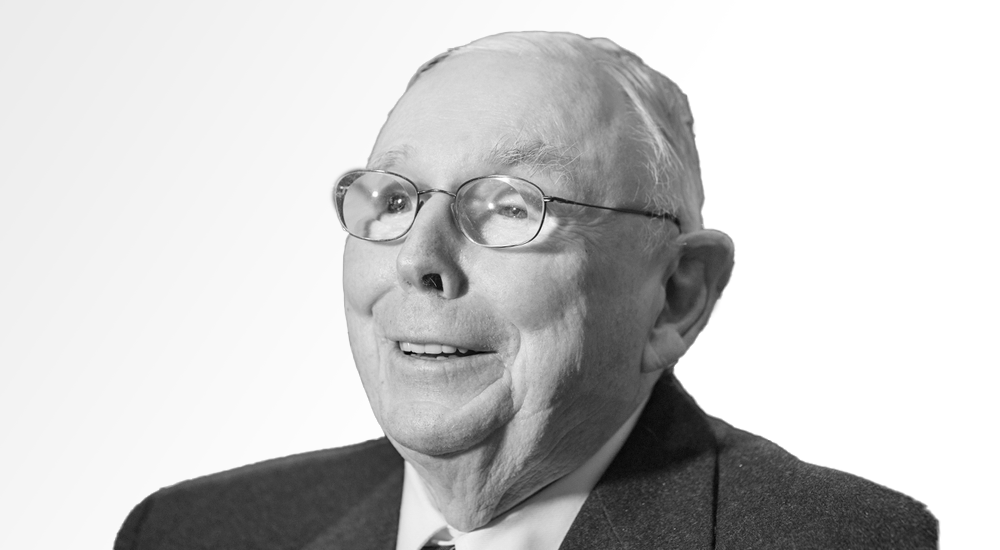Berkshire Hathaway vice chair and Warren Buffett’s long-term business partner Charlie Munger has died at the age of 99 at a California hospital.
Berkshire CEO and six-decade investment partner Buffett said in a statement the company “could not have been built to its present status without Charlie’s inspiration, wisdom and participation”.
After stepping back from practicing law at his own firm, Munger Tolles, Munger (pictured) went on to play an integral role in the Berkshire conglomerate that went from being a textile manufacturer to being one of the top investors in companies such as Apple and Coca Cola, as well as full owners of household names including Dairy Queen and Duracell.
Buffett previously credited his business partner for ending the ‘cigar butt’ investing strategy he learned from famous value investor Benjamin Graham, which involved buying companies at bargain prices for ‘free puffs’.
“[Charlie’s] most important architectural feat was the design of today’s Berkshire,” he said.
“The blueprint he gave me was simple: Forget what you know about buying fair businesses at wonderful prices; instead, buy wonderful businesses at fair prices.”
Munger on passive
In his later years, the Berkshire heavyweight was also outspoken about the growth of the passive investment industry and its merits and shortcomings versus active management.
In February, Munger said active managers live in “extreme denial” about lagging index returns and added charging high fees for underperformance is “moral depravity”.
“If you want an example of denial affecting things, take the world of investment management. How many managers are going to beat the indexes, all costs considered? Maybe 5% consistently beat the averages; everybody else is living in a state of extreme denial.
“[Active managers] are used to charging big fees for stuff that is not doing their clients any good. It is a deep moral depravity.”
He added another issue in the US is finding ‘good businesses’ before everybody else does, with a ‘great business’ often trading at 25 to 35 times earnings.
“Some people get good at it but not many. I think 95% of the people working as professional asset managers in America, I would not want working for me. I think it is that hard, you have to be in the top 5%.
“What is not difficult is to buy an index fund and sit on your ass. That is the great default position. We have just put in a 401k plan for the Daily Journal Corporation. What are the investment options for the [employees]? Zero. It is all index funds,” he said.
The new guard of corporate power
However, the investing merits of passive fund issuers has been accompanied by a growth in their influence, a dynamic Munger decried when asset managers increasingly pursue corporate governance goals beyond fiduciary duties.
“It is a very serious issue because it is an enormous amount of power,” he said. “For a while, these index funds got to feel like they were suddenly made godlike, to clean up the world.”
“I have no feeling that anyone at Vanguard or Larry Fink’s operation has any special genius on how American corporations ought to be run. To the extent that they ask Berkshire Hathaway to do this or that, I wish they would stop.”
As in investing, so too in life, Munger said the key to success and longevity is “simple”.
“You do not have a lot of envy, you do not have a lot of resentment, you do not overspend your income, you stay cheerful in spite of your troubles, you deal with reliable people and you do what you are supposed to. All these simple rules work so well to make your life better and they are so trite.”





